MERV stands for Minimum Efficiency Reporting Value, which is used to predict the efficacy of air filters in removing contaminants from indoor air. As such, a filter with a high MERV rating can filter out finer contaminants better than one with a lower MERV rating.
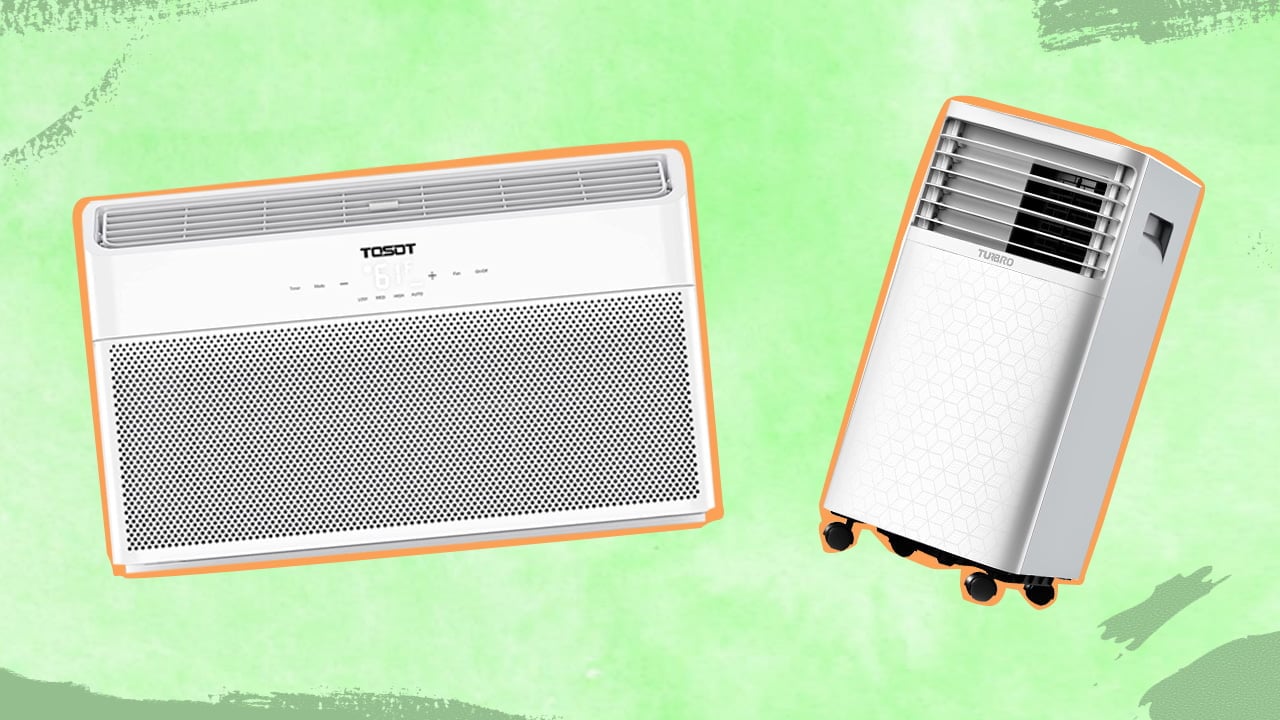
Understanding your air filter’s effectiveness is a crucial first step in ensuring clean, allergen-free indoor air to breathe in. And its MERV rating is one such factor that can help you in this regard.
But what is a MERV rating, and what are its implications in the long run? Dive in to learn about it all!
What Is A MERV Rating?
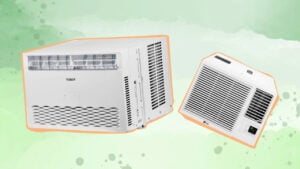
MERV, an acronym for minimum efficiency reporting value, is a rating system first developed by the American Society of Heating, Refrigeration, and Air-Conditioning Engineers (ASHRAE) in the 1980s. Simply put, this rating system was established to help people gauge the efficacy of the air filters used in a building’s HVAC system.
A higher MERV rating of an air filter enhances its ability to trap and remove contaminants like dust, pollen, smoke, and other airborne particles. This also means that a filer with a high MERV rating is more efficient at trapping finer particulate matter than one with a low MERV rating. In hindsight, a higher MERV rating can help improve your indoor air quality drastically.
The MERV Rating Chart
MERV filter ratings are industry standard, meaning you can use them to compare filters irrespective of their size and brands. Moreover, these ratings typically appear in a numerical chart from 1-20, but for the sake of convenience, they are often grouped together.
So, in the following section, I will quickly take you through the different groups and how each of them is suitable for different situations.
1. MERV 1-4
An air filter with a MERV rating between 1 and 4 can efficiently remove particles measuring up to 10 microns. Although they aren’t the best for filtering tiny particles, they can still be used to remove dust mites, textile or carpet fibers, and sanding dust, among other things. As a result, these MERV filters are generally preferred for installation in places where people are prone to dust allergies.
Air filters rated between MERV 1 and 4 are considered more suitable as furnace filters in residential furnace (central heating) systems, window-mounted ACs, as well as pre-filters in commercial spaces.
2. MERV 5-8
Air filters with MERV ratings from 5 to 8 are better at removing smaller particles measuring between 3 and 10 microns. These air filters can be used in spaces like industrial workplaces and paint booth inlets, which are usually susceptible to mold, spores, dust lint, and cement dust, in addition to the pollutants mentioned above.
Not only that, but MERV 5 to 8 air filters can also help improve indoor air quality of commercial and residential buildings. Or, you can use them as pre or final filters.
3. MERV 9-12
Designed to filter out dust particles measuring between 1 and 3-micron, these air filters can remove both large and small particles, like pollen, house mites, and even Legionella bacteria. Besides, they can be used to filter out different types of dust particles, like:
- Cement dust
- Lead dust
- Sanding dust
- Humidifier dust
- Coal dust
- Nebulizer dust
These air filters are largely considered the threshold of high-efficiency particulate air filters and find widespread use in big residential and commercial buildings, hospital labs, and as pre and final filters.
4. MERV 13-16
MERV filters rated between 13 and 16 can remove more than pollen, dust mites, and sand, as they can trap particulates measuring between 0.3 and 1 micron in size. As such, they are employed as final filters in surgery rooms, smoking lounges, inpatient care rooms, and commercial buildings equipped with multiple heating and cooling machines.
These high MERV-rated air filters can efficiently remove:
- Tobacco smoke
- Pet dander and lint
- Copier toner discharge
- Insecticide dust and fumes
- Sneeze nuclei
- Hair spray
- Powder makeup particles like face powder or setting powder
5. MERV 17-20
As you may have already understood, air filters with a MERV rating between 17 and 20 are considered the best of the lot, as they can remove small particles to the tee. To give you a better idea about their efficacy, these filters are used in air conditioners and HVAC systems to eliminate:
- Combustion smoke
- Radon progeny
- Microscopic allergen particles
- Carbon dust
- Virus carriers
- Other contaminants measuring less than .30 microns in size
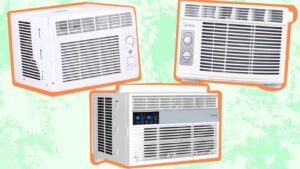
What Are Pre And Final Filters?
Pre-filters facilitate the initial stages of filtration, capturing the contaminants before the air reaches the expensive final filters. This method is generally used for multi-filtration level HVAC systems to protect the final filters from wear and tear and extend their service life.
Final filters, on the other hand, constitute the last stage of filtration in both single and multi-filtration systems. When used in the former, they serve as the primary stage of filtration. They can also be combined with multiple pre-filters to reinforce the efficacy of the HVAC unit.
How To Choose The Best Filter For Your Home Or Office?
You may be thinking that understanding the MERV scale alone will help you pick the right air filter for your needs. However, this isn’t the case, as there are a few other factors to consider.
Aside from indicating filtration efficacy in removing contaminants, your filter’s rating can help you figure out its power consumption in the long run. From what I have seen over the years, higher MERV ratings almost always translate to higher energy bills.
This is because a higher MERV-rated filter will trap more particles, putting more strain on your HVAC or ventilation system, thereby increasing your energy consumption. Long story short, the highest MERV-rated filter may not always be the solution to your problem.
For best results on energy efficiency, you should check the CEER rating of your AC as well. However, people who need only occasional cooling without intensive air filtration needs often choose battery-powered units. You can learn more about these portable versions in my other readers.
So, how to select the right filter rating for your needs? The recommended MERV rating for residential use is generally between 8 and 13. However, since industrial settings produce more contaminants than most households, you can opt for a higher rating between 14 and 20.
The same is true for establishments like a hospital laboratory or surgical room, which can produce toxic air contaminants not usually found in residential spaces or offices.
Mid to Lower MERV Rating [8-13]
Pros
- Less restricted airflow
- can be cleaned/ changed less often
Cons
- Smaller particles are not filtered
- more particles circulate in your air causing you to breathe them repeatedly
- more dust and dirt will go into your HVAC unit, which can lead to needed repairs
Higher MERV Ratings [14+]
Pros
- Higher level of ventilation and protection from contaminants
Cons
- More restricted airflow, which can worsen air quality
- higher possibility of damage to your furnace fan or AC system
- need to be cleaned/changed more frequently
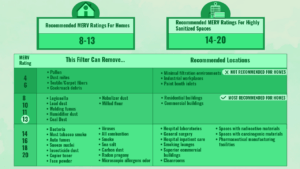
Do HEPA Filters Come With MERV Ratings?
Yes, HEPA (high-efficiency particulate absorbing) filters come with MERV ratings, just like standard filters used in heating, ventilation, and air conditioning systems (including portable units). In fact, HEPA filters with the best MERV rating are designed to remove very small contaminants from indoor air (measuring 0.3 microns).
Hence, HEPA home air purifiers have become extremely popular for removing dust, pollen, smoke, and other particles that can cause allergies or any respiratory disease like asthma. You will also find air conditioners compatible with HEPA filters for the same reason. However, it’s important to note that these filters won’t last for eternity and should be changed regularly.
Tip
If your HVAC or air conditioning system is making unusual noises or taking more time to produce cool air, it may be time to change the filter. Contact an HVAC technician to diagnose the issue and fix it at the earliest.
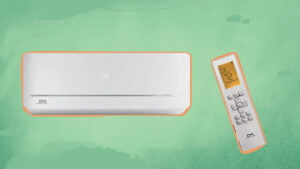
Final Words
Honestly, the MERV rating is just one aspect to ensure the energy efficiency of your air filters. Unless you’re maintaining them properly and replacing them when needed, the filters will be exposed to undue pressure, which can cause the energy bills to rise exponentially.
So, if you’re experiencing restricted airflow from your HVAC or ventilation system, it’s making unusual noises, or there’s sudden indoor air pollution, then it may be time to change the filters. I’d strongly recommend availing the services of a qualified and licensed professional to get the job done. Otherwise, you may end up damaging the filters or the overall system irreparably.
Moreover, it’s important to ensure regular maintenance of your ACs and ventilation systems so that they have a prolonged service life.
